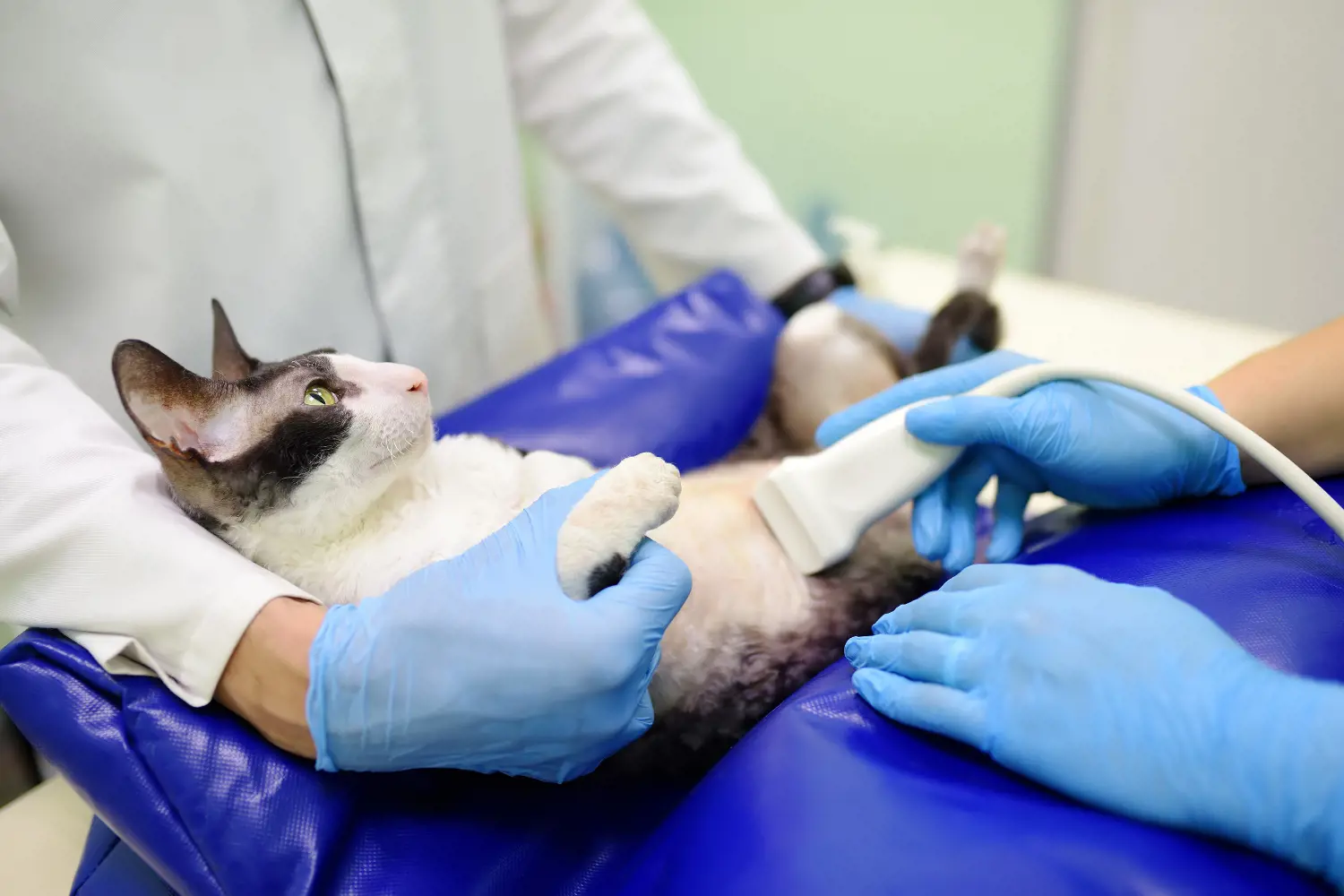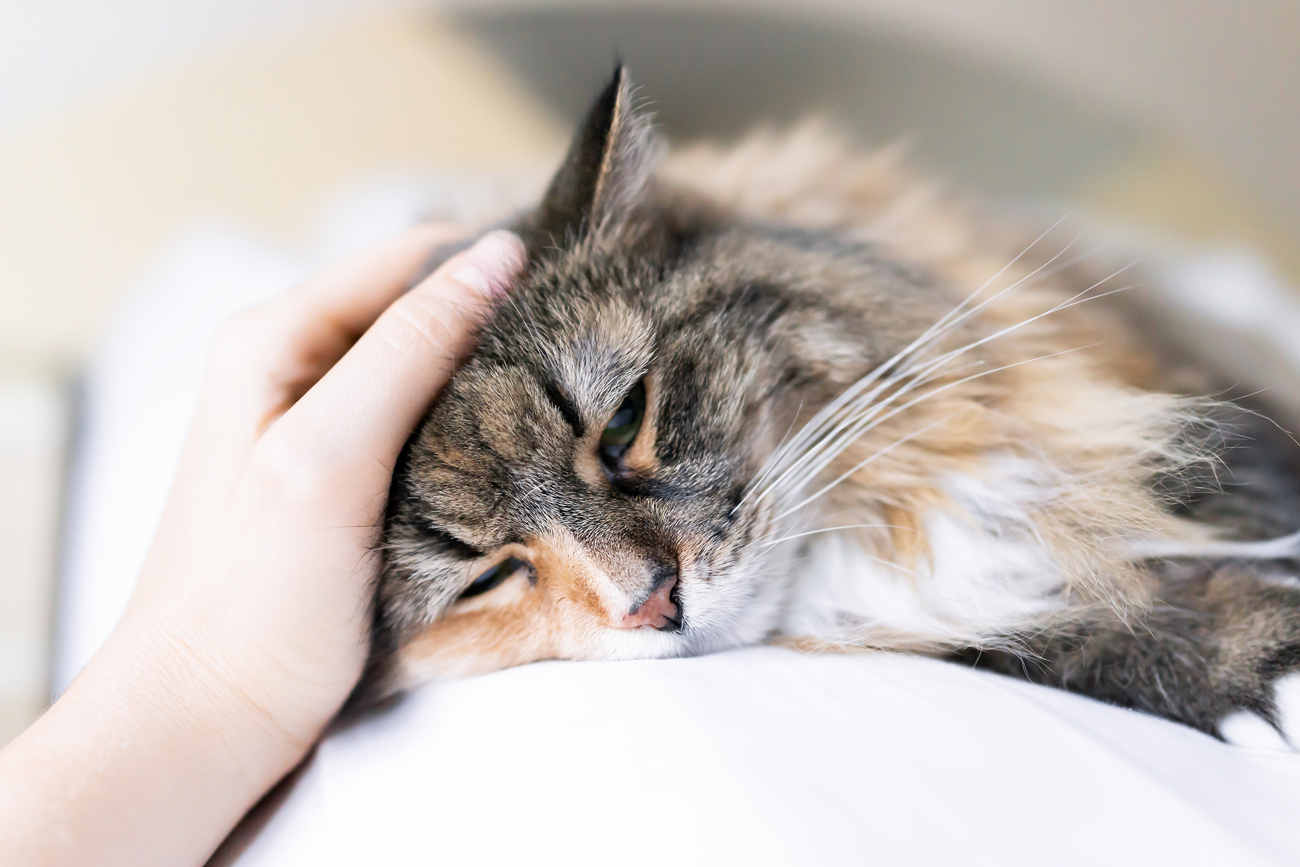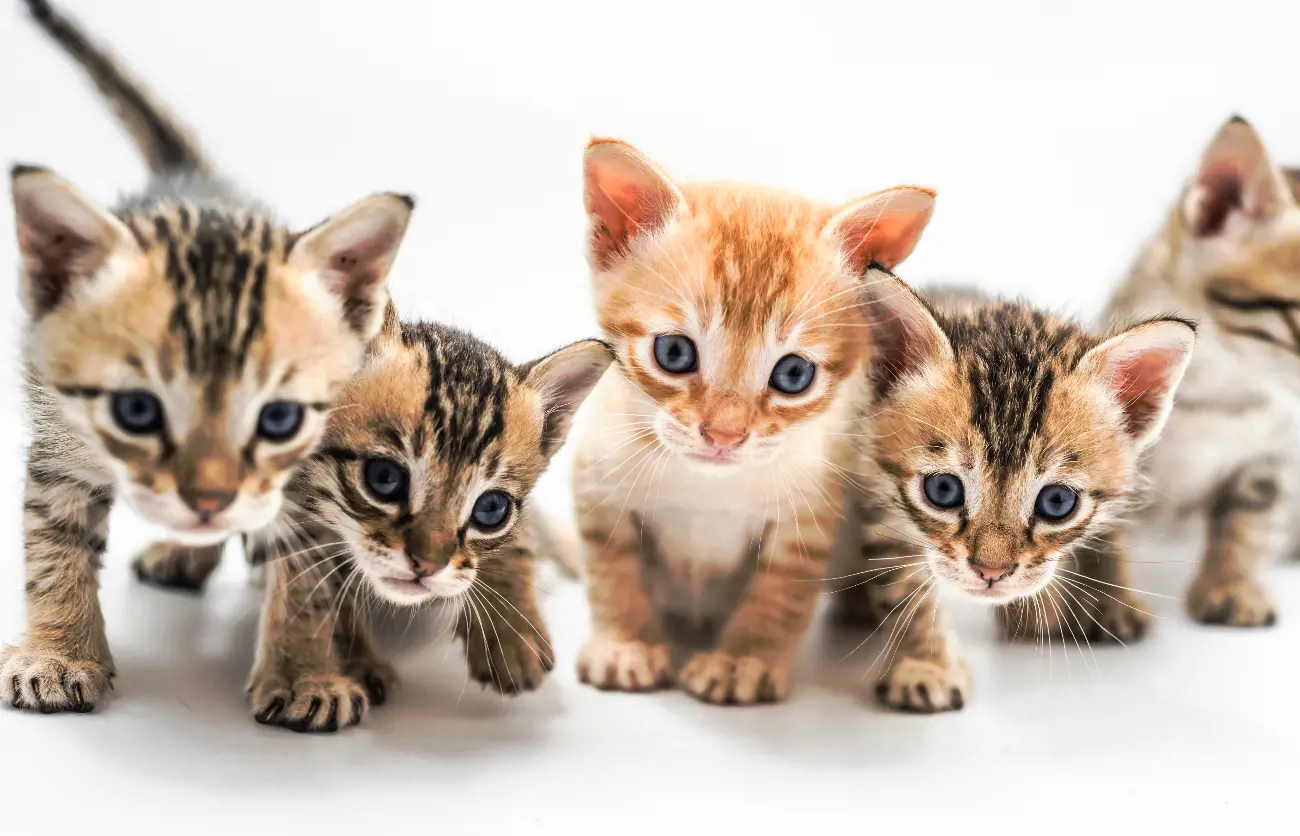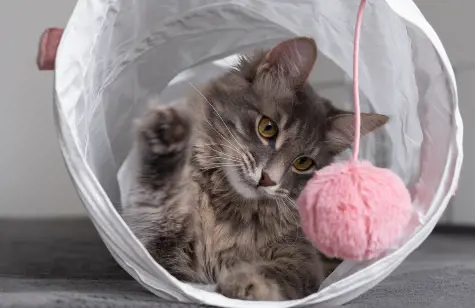What is spontaneous abortion in cats?
30th March, 2023

Worried your beloved cat may have had a spontaneous abortion? Read our guide to what signs to look out for, potential causes and how your vet can help.
Cats can be susceptible to a wide range of medical problems, but if you’ve got cat insurance from Purely Pets, you’ll always know that help is on its way! Give our caring team of insurance specialists a call today and get your cat protected now.
What is spontaneous abortion in cats?
Spontaneous abortion, also known as miscarriage, is a term used to describe the death of a foetus during a cat’s pregnancy. It can occur at any time, although the signs of spontaneous abortion will vary depending on when in the pregnancy it has occurred.
According to VCA Animal Hospitals, if spontaneous abortion happens during the earlier stages (say, before 45 days), then the embryo is often reabsorbed into the mother’s body and the miscarriage may go completely . Indeed, other kittens in the litter may go on to be born normally.
But it may also occur later in pregnancy. If this happens, the symptoms will be much more obvious.
What are the symptoms?
Spontaneous abortion can be a distressing and traumatic experience for both the cat and the loving pet parent. But spotting the signs early can help to ensure the best medical care is sought as soon as possible.
The symptoms of spontaneous abortion in cats can vary depending on the stage of pregnancy and the underlying cause of the miscarriage. Some common signs of spontaneous abortion include:
- Vaginal bleeding/discharge: The cat may pass an abnormal amount of blood, fluid, or tissue from her vagina. As well as bleeding, you might notice a discharge that’s pus-like, green, black or brownish in colour and can be accompanied by a bad smell.
- Abdominal pain: The cat may show signs of discomfort, such as restlessness, pacing, or increased vocalisation. She may also experience abdominal cramping or sensitivity.
- Expelled foetus or placental tissue: Especially if the cat is in the later stages of pregnancy.
- Loss of appetite and weight loss: The cat may show a decrease in appetite or refuse to eat altogether.
- Vomiting and/or diarrhoea: They may also develop a fever and dehydration.
- Lethargy and depression: The cat may become lethargic and show a decrease in activity levels.
- Behavioural changes: The cat may show changes in behaviour, such as nesting or becoming more withdrawn or irritable.
- Open-mouthed breathing: In some cases, a cat may breathe hard with her mouth open, this can be a sign of shock or distress.
It is important to note that not all cats going through spontaneous abortion will show all of these symptoms, and some cats may show no symptoms at all!
It’s also worth pointing out that many of these symptoms could indicate other medical conditions, so it’s vital to speak to your vet for an accurate diagnosis.
With cat insurance from Purely Pets you’ll have access to 24/7 vet video consultations. So, you’ll be able to get help and advice when and where you need it.
What causes spontaneous abortion?
While the exact cause of a spontaneous abortion in a cat is not always known, there are several factors that can contribute to this condition.
Understanding the potential causes of this upsetting medical problem can help pet owners take steps to reduce the risk of this happening to their feline friends.
- Hormonal imbalances: Low levels of progesterone can lead to spontaneous abortion in cats. Progesterone is essential for maintaining pregnancy, and if levels are too low, the uterus may not be able to support the developing foetuses.
- Infections: Bacterial infections such as brucellosis, viral infections such as feline herpes virus, feline immunodeficiency virus and feline leukaemia, and fungal infections can be responsible for spontaneous abortion.
- Genetic abnormalities: Some genetic mutations can cause severe developmental problems in the foetus that may not be compatible with life.
- Inbreeding: Purebred cats do seem to have a higher chance of experiencing spontaneous abortion than mixed breeds.
- Nutritional deficiencies: A diet lacking in essential nutrients such as vitamins and minerals can affect the health of both the mother and the developing foetuses.
- Parasites: Neospora Caninum is a parasite that can enter a cat’s system and cause spontaneous abortion. It’s usually picked up when a cat shares food or water with a contaminated dog.
- Trauma: Whether as a result of physical injury or intense stress, a traumatic event can cause the uterus to contract and expel the foetuses.
- Underlying medical conditions: Conditions such as diabetes or kidney disease can adversely affect the overall health of the mother and make it difficult for her to carry the developing foetuses to term.
- Medications: It’s always important to consult with your vet before giving any medications to a pregnant cat.
- Age: Very old or young cats can be more susceptible to pregnancy loss.
There are many factors that can lead to spontaneous abortion in cats. Maintaining a healthy diet, providing proper medical care, and minimising stress are all important factors in ensuring the health and well-being of pregnant cats.
Diagnosis and treatment of spontaneous abortion
When it comes to diagnosis and treatment of spontaneous abortion in cats, every moment counts. If you suspect your cat has experienced a miscarriage, it’s vital to speak to a veterinary professional right away.
How is spontaneous abortion diagnosed?
You’ll need to get to your vet as soon as possible so they can perform a proper physical examination on your cat. No doubt your vet will want to have a detailed medical history of your cat, including the extent and duration of any symptoms, any medications they’re taking, and any previous history of spontaneous abortion or pregnancy problems.
They may also recommend diagnostic tests such as blood work, urinalysis, radiographs, or an ultrasound to confirm the diagnosis and test for any underlying diseases.
While your vet may not be able to prevent the spontaneous abortion from happening, testing now could help prevent spontaneous abortion in future litters.
How is spontaneous abortion treated?
The treatment plan your vet comes up with will depend on the underlying cause and severity of the condition. Some common treatment options may include:
- Medical management: If she’s not severely ill and the miscarriage is incomplete, your vet may prescribe medications to help expel any remaining foetal tissue and prevent infection.
- Surgery: In some cases, surgery may be necessary to remove any remaining foetal tissue and repair any damage to the reproductive tract. For some cats the decision may be taken to spay - read this Purely Pets article on whether spaying your pet is a good idea and does pet insurance cover spaying?
- Supportive care: Intravenous fluids, pain relief, and antibiotics to prevent infection may be necessary.
- Hormonal therapy: Progesterone supplements may be recommended to address any hormone imbalances and prevent future miscarriages. You’ll need to carefully monitor your cat in order to prevent complications with this medication.
As well as sticking to the treatment programme your vet has prescribed, it’s essential to provide your cat with a quiet and comfortable environment to recover in.
Cats who have experienced a spontaneous abortion may experience pain and discomfort, and providing a comfortable and stress-free environment can help ease their recovery.
Does cat insurance cover spontaneous abortion?
Many cat insurance providers don’t cover treatment relating to problems in pregnancy. That’s why it’s a good idea to familiarise yourself with exactly what is and isn’t covered by your policy.
Find cat insurance packed with benefits at Purely Pets

It’s important not to ignore the tell-tale signs of spontaneous abortion, or any other health condition, in your cat. Having specialist cover in place means you won’t have to delay getting them treatment when they need it most.
Here at Purely Pets, we’ve designed 15 levels of lifetime cat insurance so you can find the right cover to suit your needs and budget.
Benefits of cover with us include:
- 24/7 vet video consultations
- Excess starting from £80
- Claims paid directly to vets
Did you know you can also earn yourself £15 if you refer a friend to our award-winning insurance?
And remember, there’s no upper age limit on our policies, so whether you have a kitten or an elderly mog, our cat insurance has got you covered.
Helpful Pages
Recent Posts
Pet Insurance Quote
- 98% claims paid *
- Claims paid directly to vets
- 24/7 vet video consultations
- Interest free monthly payments




